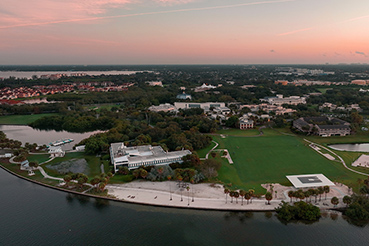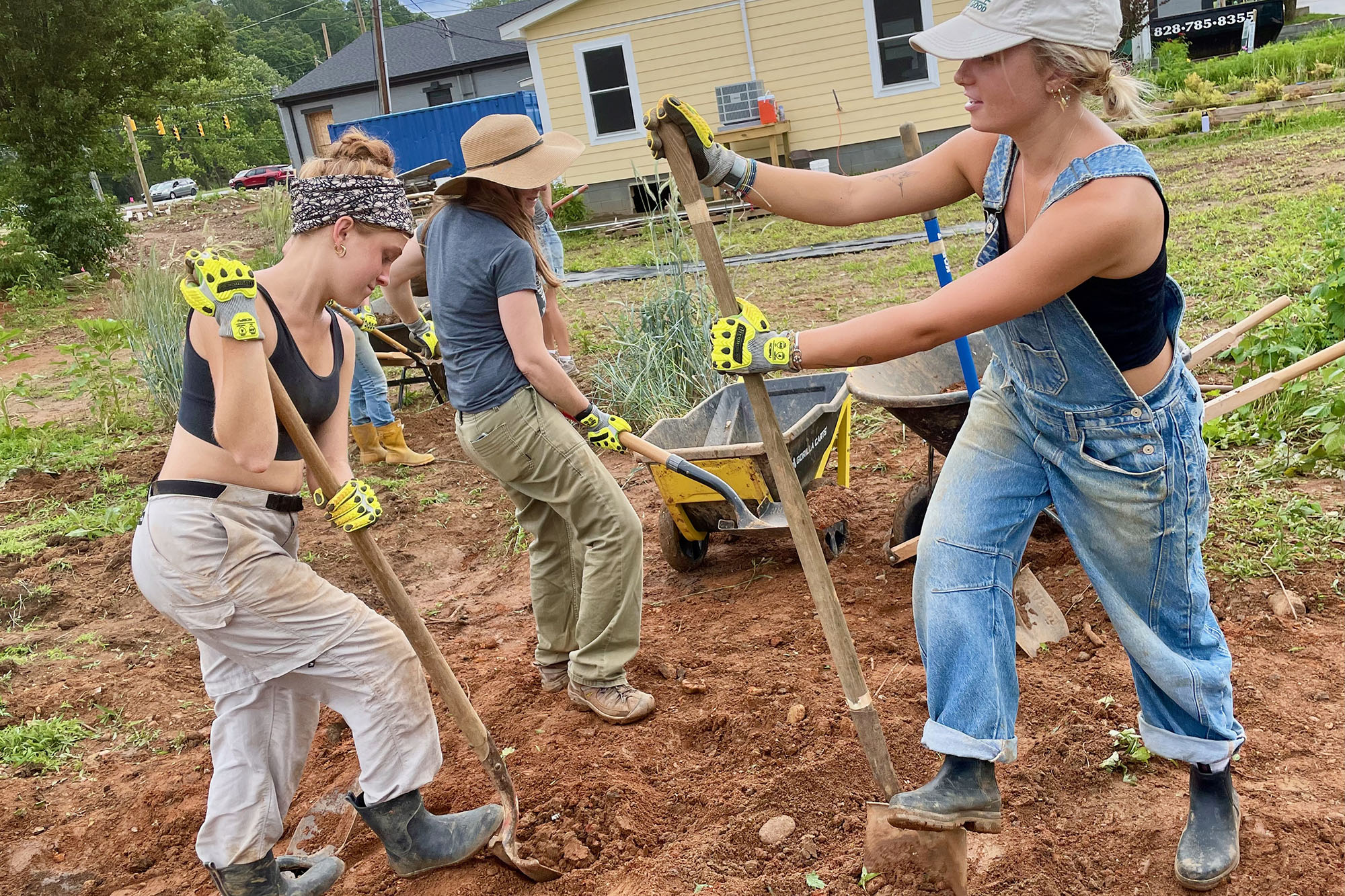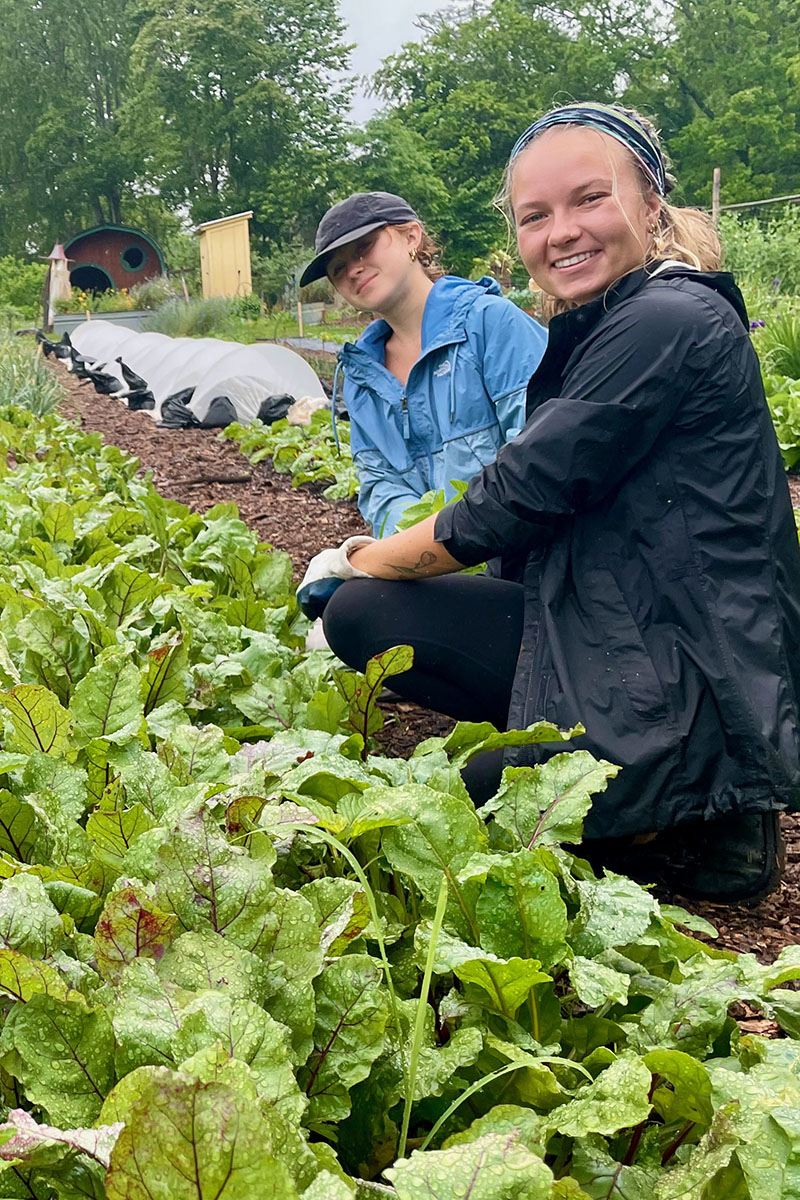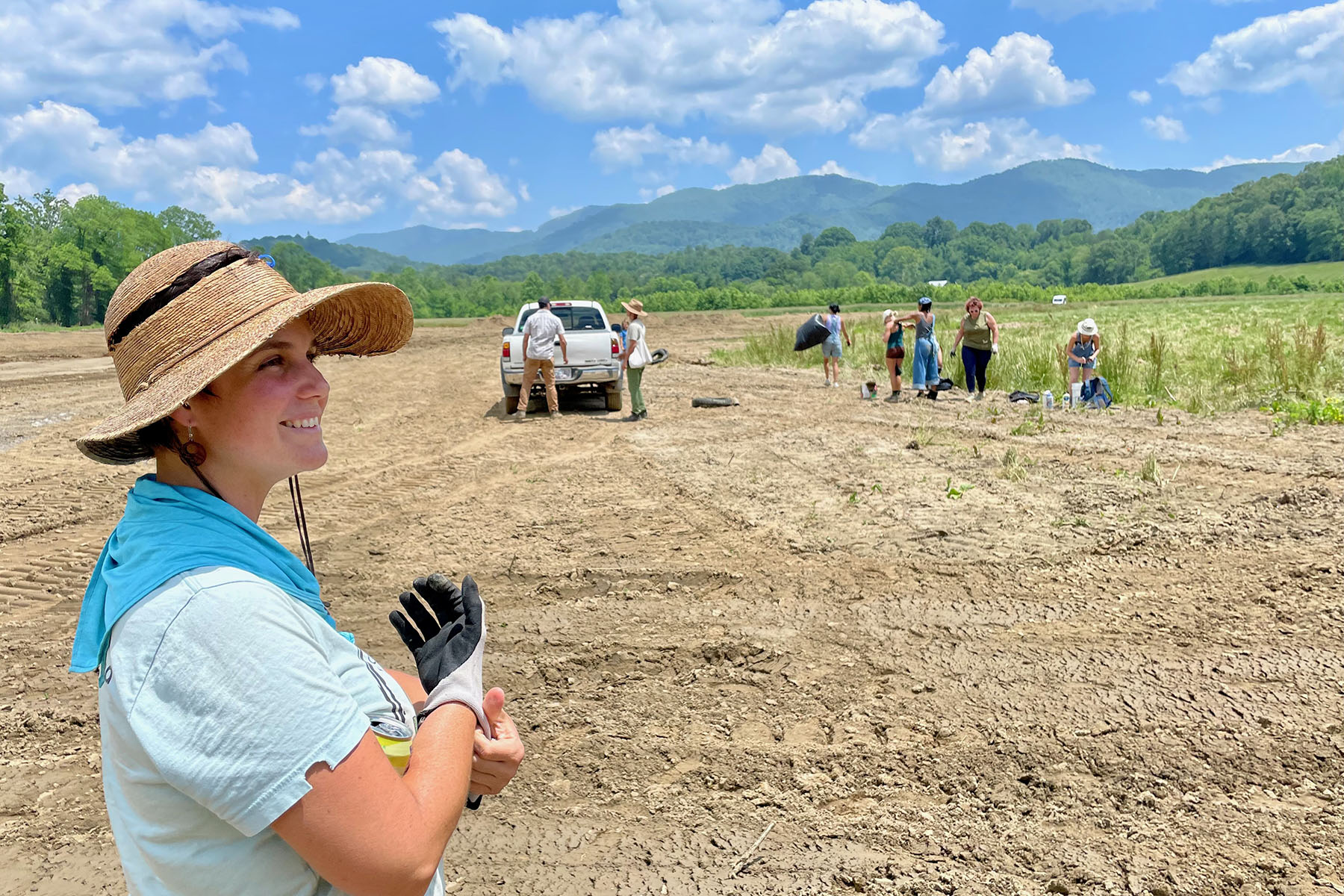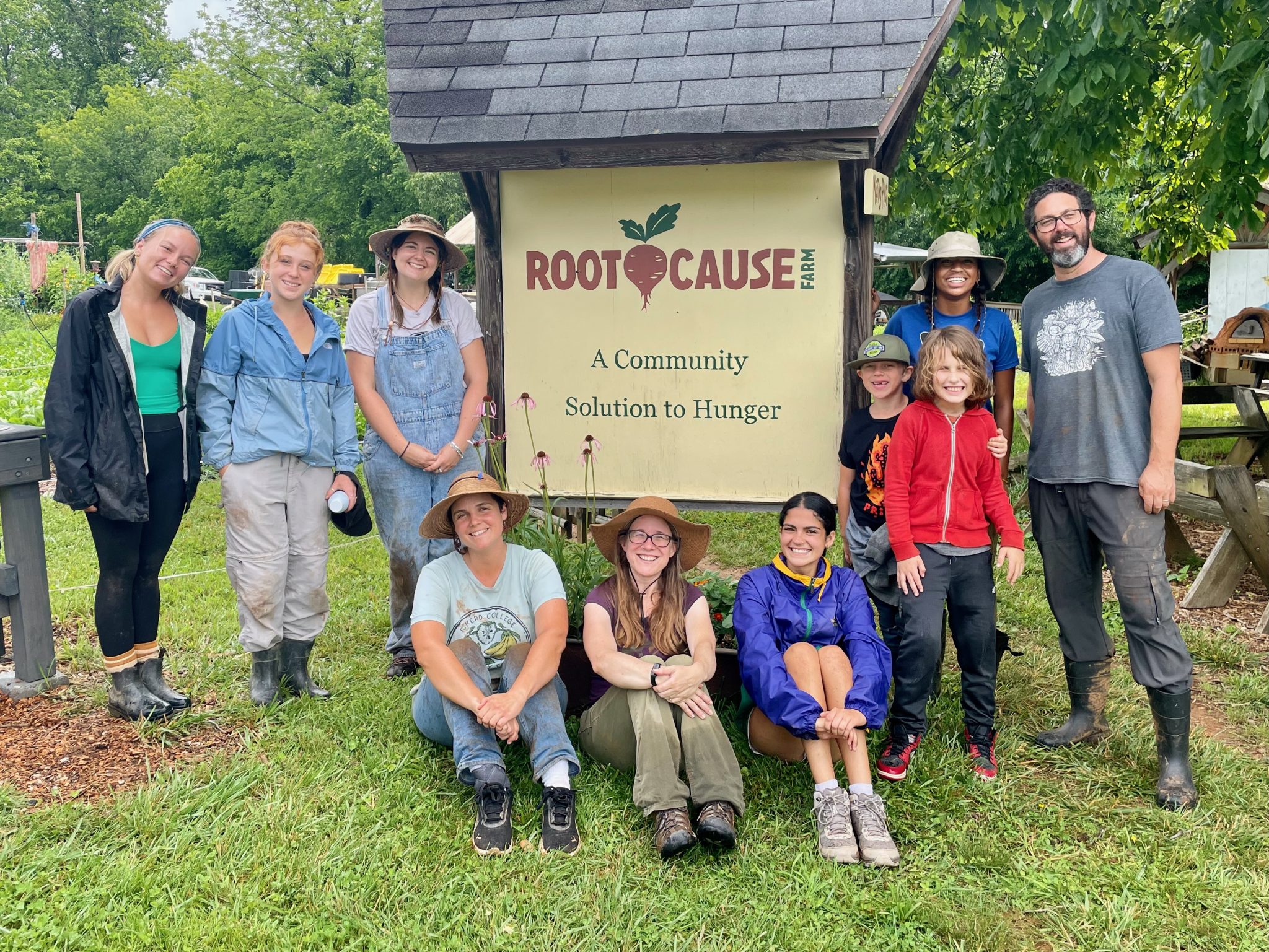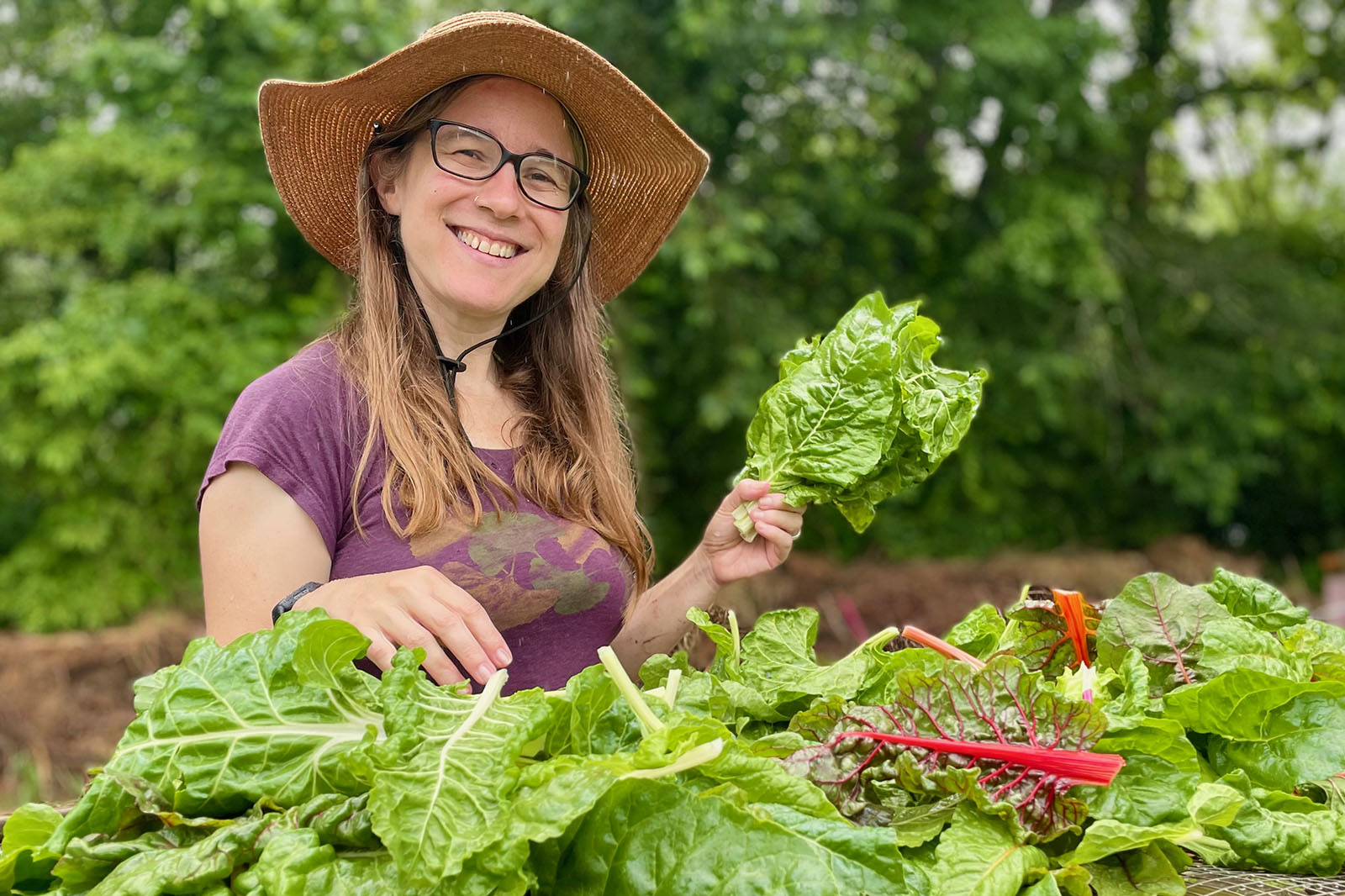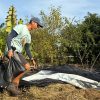David Himmelfarb, Ph.D., and Jessie Fly, Ph.D., had never thought a return trip to Western North Carolina with Eckerd College students would be a cleanup mission.
Last summer, Himmelfarb and Fly had spent several weeks near Asheville, North Carolina, developing a course centered on food culture and the environment. Two of those people were Eckerd alumni Leonora Stefanile ’11, garden manager at the Dr. John Wilson Community Garden in Black Mountain, and Thomas Leonard ’12, co-founder of Contour Lines, an agroforestry nonprofit. Both Leonora and Thomas had been instrumental in founding the Eckerd College Community Farm, a 1-acre plot that provides fruits and vegetables to the College and serves as an outdoor classroom and event venue.
But in late September 2024, Tropical Storm Helene had devastated the Asheville area. It is still recovering.
So Eckerd’s objective changed. In early June, Environmental Studies Instructor, Internship Coordinator and Community Farm Faculty Director Himmelfarb and Associate Professor of Anthropology Fly joined Eckerd Farm Manager Maggie Jensen ’11 on a mission. They loaded up an Eckerd van and—along with seven students, several of them from the farm’s summer crew—made a 12-hour, 650-mile service trip to North Carolina.
The cohort’s home base was Warren Wilson College, a private liberal arts school near Asheville whose president, Damián Fernández, Ph.D., had served as Eckerd’s president from 2020–2022. “That area was so severely hit,” Himmelfarb says. “We wanted to give back to the people who had been so gracious and welcoming to us. And Maggie, who also helped establish the community farm and is close friends with Leonora, had the same idea.”
Much of the work was debris removal at local farms and homes. “There was a lot of destruction,” says Dakota Warnsley, a rising sophomore environmental studies student from Nashville, Tennessee. “So many trees are down; some roads are still out … nine months later, and it’s still a work in progress. But I also saw a lot of beauty and a lot of optimism and community spirit.
“We helped clean up debris at community farms where people are able to get organic food for free. And the people we met could not say thank you enough. It was like they knew we understood how this was a very hard thing for them to go through.”
“I’ve done community cleanup, but not like this,” Dakota adds. “The damage seen in Asheville was extensive, but I felt happy to be a part of a group that aided in helping this community.”
Madison Prikryl, a rising senior environmental studies student from Schroon Lake, New York, who serves as a community farm ambassador, said the Eckerd team also helped the farm crew at Warren Wilson mend fences and relocate cattle and sheep. They also worked at Root Cause Farm, a nearby nonprofit that provides free organic produce to communities in need.
“It was really incredible to meet Leonora at the Wilson Community Garden,” Madison says. “It was a full-circle moment for a lot of us. It shows what people have gone on to do with their careers.”
But the most impactful day was the last one, Madison remembers. It involved shoveling red clay out of the home of Mark Dempsey, a graduate student at Clemson University who works for the Carolina Farm Stewardship Association. “A woman stopped her car and honked her horn and thanked us. That was the motivation we needed to get through the day.
“And when we finished,” Madison recalls, “we scattered sunflower seeds in the yard. Mark said when the plants emerge, it’ll be a nice reminder of what can happen when people help other people after a disaster. He said there’s a big surge of attention right afterward, but then FEMA leaves and people stop coming to help.”
Madison, who hopes to join the Peace Corps after she graduates, said that, like Dakota, she learned through the experience that “you don’t need a big group to make a difference in people’s lives, and that these things [hurricanes] will keep happening unless we decide to make protecting the environment a serious issue.”
Funding for the trip was provided by Eckerd’s General Education and Reflective Service Learning programs and by money raised through the farm’s plant sales. “We had a fantastic group who brought a lot of energy and enthusiasm,” Himmelfarb says. “It’s really empowering for students to provide direct service to people who need it, and the need there is astounding.
“This was the same storm that flooded our area,” he adds. “To see what it did to our campus and then to the people who live hundreds of miles away … Clearing up inside of people’s homes, picking up the siding and flooring that just a few months ago was somebody’s life. But everyone who went was moved by how even a small group can help.
“We’re talking now about beginning every summer with a service trip.”

